Center for Mindful Psychotherapy, July Newsletter
Your monthly newsletter from our non-profit collective of over ~100 Associate Marriage and Family Therapists in the San Francisco Bay Area
Bringing You A Moment of Mindfulness
Since 2008, July has been recognized as Bebe Moore Campbell National Minority Mental Health Awareness Month, a month to raise awareness about and destigmatize conversations regarding BIPOC mental health. In this newsletter, we share more about this with you, and we welcome additional thoughts and resources.
Before we dig in, though, here's a reminder to take just a moment to land here. You do not need to multi-task. You don't have to think about what's next. Be right here with these words on this page. Listen to your own heartbeat and feel your feet on the ground as you take in these ideas. We are happy to be here in this space with you.
Announcement: August 4th free zoom group for PMDD
Associate therapist Samantha Lunt says:
“Navigating life with PMDD is difficult, and often feels very lonely. My intention with this support group is to change that. I want this group/space to be a place where PMDD peeps can come together, connect, and meet other people living with PMDD. Please note, this is a support group, not a therapy or process group. The group is open to all people living with Premenstrual Dysphoric Disorder. Trans, nonbinary, and BIPOC folks of all ages are welcome!”
This support group is free.
Date: August 4th, 2024
This group is via Zoom
More Details Here
Questions or for a Zoom link please email me:
BIPOC Mental Health Month + Bebe Moore
BIPOC Mental Health Month, also known as Bebe Moore Campbell National Minority Mental Health Awareness Month, was established in June 2008 to raise awareness about the unique mental health struggles faced by underrepresented groups in the United States.
Note: Calling it BIPOC Mental Health Month instead of honoring Bebe Moore specifically is controversial. Learn more.
Campbell gained prominence as an author, known for her powerful storytelling and exploration of themes such as racism, mental health, and family dynamics. In addition to her literary achievements, Campbell was a passionate advocate for mental health. Inspired by her personal experiences with mental illness within her family, she worked tirelessly to raise awareness about mental health issues, especially within minority communities. Campbell’s advocacy efforts aimed to address the unique challenges and disparities faced by marginalized groups in accessing mental health care. BIPOC Mental Health Month continues this work in her honor.
From Amazon:
Some mornings, Annie's mother's smiles are as bright as sunshine as she makes pancakes for breakfast and helps Annie get ready for school.
But other days, her mother doesn't smile at all and gets very angry. Those days Annie has to be a big girl and make her own breakfast, and even put herself to bed at night. But Annie's grandma helps her remember what to do when her mommy isn't well, and her silly friends are there to cheer her up. And no matter what, Annie knows that even when Mommy is angry on the outside, on the inside she never stops loving her.
Asked for her best free self-care tip, our associate therapist Elaine Walker said:
“Being outside, facing the sun or the moon and breathing in/soaking in its rays.”
Asked for a good self-care tip on a budget, she said:
“Riding public transportation to a park, especially with a view. Views calm the nervous system and immediately make us feel calmer.”
And at a higher price point, she recommends:
“body work like a massage or Rosen method session”
You can learn more about Elaine by visiting her Conversations with Clinicians interview.
The Crucial Role of Therapists of Color in Addressing Racism
In the face of racism and the pervasive impacts of white supremacy, seeking support from a therapist who comprehends the intricate complexities of these systemic problems is indispensable. Therapists play a critical role in helping individuals navigate the psychological and emotional effects of racism, explore racial identity, challenge internalized biases, and foster personal growth and anti-racist action. Culturally competent therapists, particularly those of color, serve as essential allies in this journey, providing a safe and affirming space for clients to heal and empowering them to address the impacts of racism in their lives. However, both clients and therapists of color face unique challenges on this path, underscoring the importance of supporting therapists of color to effectively guide their clients through the transformative process.
The Essential Role of Therapists of Color
Therapists of color play a critical role in facilitating healing for individuals grappling with the trauma of racism. Their cultural competence and ability to understand the complexities of racial identity and oppression provide an unparalleled therapeutic experience for clients. This support empowers clients to challenge internalized biases, cultivate resilience, and confront the multifaceted impacts of white supremacy on their lives. Therapists of color act as both guides and advocates, enabling clients to develop the skills needed to navigate racially-charged situations and advocate for social change.
Therapists of color possess unique strengths that enrich their therapeutic work. Their shared racial or ethnic backgrounds with clients often establish a profound sense of trust and understanding, allowing for deeper emotional connections and more honest conversations about racial experiences. Clients may feel psychologically safer with therapists who innately grasp their perspectives, sparing them the exhausting task of explaining every nuance of their experiences. This natural connection fosters a therapeutic alliance built on empathy and shared cultural understanding.
Therapists of color possess a unique position as change agents both within their practice and in the broader community. Collaborating with clients to develop advocacy strategies empowers clients to take action against racism and discrimination. By supporting clients on their journey towards personal growth and social change, therapists of color drive meaningful transformation within their communities and society as a whole.
Challenges for Therapists of Color
Despite these strengths, therapists of color also face inherent challenges in their role. Bearing witness to clients’ retraumatization and the enduring effects of racism can be emotionally draining for therapists. As they navigate their own triggers and emotional responses stemming from shared experiences of discrimination, therapists of color must also balance their personal struggles with providing support for their clients. This emotional burden can contribute to burnout and compassion fatigue, threatening the therapist’s ability to sustain their impactful work.
Lauren Diethelm, writing for the Simple Practice blog, reports that young clinicians of color are the most likely to experience burnout. Quoting burnout coach Mona Eshaiker, LMFT, Lauren writes:
“Stress compounds. It’s not just one thing,” Eshaiker says. “So, especially for clinicians of color, watching all these things as our clients are also experiencing them—that stress has been compounding for a long time. Of course we’re more burnt out.”
Navigating the Emotional Toll
To ensure the continued positive impact of therapists of color for clients, it is essential to recognize and address the emotional toll of their work. Providing ongoing support and resources for therapists of color is crucial in fostering resilience and preventing burnout. Regular supervision, peer support groups, and self-care practices can help therapists navigate their own emotional reactions while maintaining their well-being. Acknowledging the challenges they face and creating a supportive environment allows therapists of color to sustain their transformative work in the face of adversity.
CMP Affinity and Consultation Groups
We here at CMP recognize that our field is steeped in white supremacist values and conditioning. This reality poses a whole host of barriers and issues for clinicians and clients who are black, indigenous, and people of color navigating the mental health system, and does not challenge white clinicians to subvert the paradigm or engage in anti-racist praxis. We work to provide the necessary support for our therapists around these issues.
To that end, we offer two ongoing affinity and consultation groups for our CMP therapists around these complex issues: The CMP BIPOC & Mixed Race Affinity & Consultation Group and the CMP White-Identified Anti-Racism Affinity & Consultation Group. These are for CMP therapists only and are a place for therapists to get support, have their questions answered, learn and grow so as to better help their clients while practicing their own self-care.
The CMP BIPOC & Mixed Race Affinity & Consultation Group
works with participants on how to support clients, when impacted by what’s going on in the world, primarily in a consultation style, as well as with support. It supports participants in raising their own awareness when working with people from their own community, provides a space to explore/address vicarious trauma, and is flexible in terms of meeting the needs that the participating therapists bring to the table.
The CMP White-Identified Anti-Racism Affinity & Consultation Group
is a space to support each other in understanding how our work as therapists, of all disciplines, intersects as the world calls on white people to collectively and individually step into an overdue reckoning with racial justice. There’s encouragement to explore what it means to be an anti-racist therapist, building on-going awareness of white privilege, and the more general culture of white supremacy that often, by default, we find ourselves participating. Note that this group paused for the summer but is resuming in fall.
We continue to work at learning how we can best serve diverse communities and support our BIPOC therapists as they grow their practices.
Additional Information:
What is Anti-Oppressive Therapy?
Anti-oppressive therapy is a therapeutic approach that is grounded in principles of social justice and aims to address the systemic and structural forms of oppression that individuals or communities may face. It recognizes that societal factors such as racism, sexism, homophobia, ableism, classism, and other forms of discrimination can have a significant impact on an individual’s mental health and well-being. Anti-oppressive therapy seeks to create a safe and empowering space for clients to explore their experiences and challenges within the context of these broader social injustices.
Learn more about anti-oppressive therapy here.
Recommendations
Here are this month’s recommendations:
"Music and Mind" curated by Renée Fleming showcases essays from leading scientists, artists, therapists, educators, and healthcare providers, exploring the profound impact of music and the arts on health and human experience. Covering topics such as the therapeutic benefits of music, brain function, childhood development, and technology's role in arts and health, the book delves into a rapidly growing field supported by research and advocacy. With contributions from notable musicians, writers, and neuroscientists, "Music and Mind" offers a comprehensive introduction to the intersection of music and wellness.
Kathryn VanArendonk from Vulture writes, in part:
The Great Depresh is also sad and serious and dark, and it involves a few long periods in which Gulman sustains the thread of his story without reaching for moments of laughter. He lingers on some of the lowest moments of his life. He talks about contemplating suicide. He talks about thinking his comedy career was over. He talks about his sense of shame. Some of the most painful parts come in the material about his childhood and young adulthood, when his depression was untreated and unrecognized by those closest to him. In one sequence, Gulman talks onstage about how he knows his depression began when he was very young, and then the special cuts to recent footage of Gulman with his mother as they look at photos from when he was little. The director, Michael Bonfiglio, off-screen, asks Gulman’s mother whether she thinks he was depressed as a kid. “No,” she tells him. “Absolutely not. A happier kid you couldn’t find, always had a smile on his face.”
"Meditation for the Real World" offers over 75 practical meditation techniques to help readers find relief and support in their daily lives. With science-backed guidance, this book explores how meditation can benefit mental and physical well-being, providing techniques for various situations and moments of need. From reducing stress before a presentation to enhancing focus and managing pain, discover how meditation can work for you, no matter your schedule or circumstances.
"Erik DaRosa and Marc Fernandes, two men who are candid and vulnerable about their own mental health struggles, are upending the front-end of the mental health space. Their advocacy work and weekly podcasts are focused on sharing stories, encouraging people to explore and utilize support services, and helping others find their way to thriving." - Survivor to Thriver
"It's Not You" by Dr. Ramani is a guide to understanding and healing from narcissistic relationships. Drawing on years of expertise, Dr. Ramani helps readers recognize narcissistic behavior patterns and offers strategies for protecting oneself and recovering from the trauma of these toxic relationships. Through practical advice and compassionate insight, this book empowers individuals to break free from the cycle of manipulation and reclaim their sense of self-worth.
In June 2020, in the wake of the George Floyd tragedy, NPR asked: "Is there one song helping you address your feelings right now?" and then created "This Is How I Feel: A Playlist By Young Black Listeners"
Music is the Medicine
This month’s music share is:
Mental Health News From Around The Web
aeon: Decolonizing Psychology: How Psychology Can Be a Tool for Postcolonial Freedom
AP News: A bench and a grandmother’s ear: Zimbabwe’s novel mental health therapy spreads overseas
APA journal addresses racism in psychology
AHA podcast: Addressing Mental Health Disparities Among Racial and Ethnic Minorities
NIH: Collaborative Care Could Help Reduce Disparities in Mental Health Treatment
Nature: How PhD students and other academics are fighting the mental-health crisis in science
Forbes: 2 Psychologist-Recommended Series That Ace Mental Health Representation
UCnet: UC nursing schools collaborate to expand the mental health care workforce
NPR: Stressed about politics? Here are 5 ways to take care of your mental health
Psychology Today: Perspective on "Inside Out 2" from a childhood trauma therapist and mother.
ESPN: A day in the life of Beacon, the therapy dog at U.S. Olympic gymnastics trials





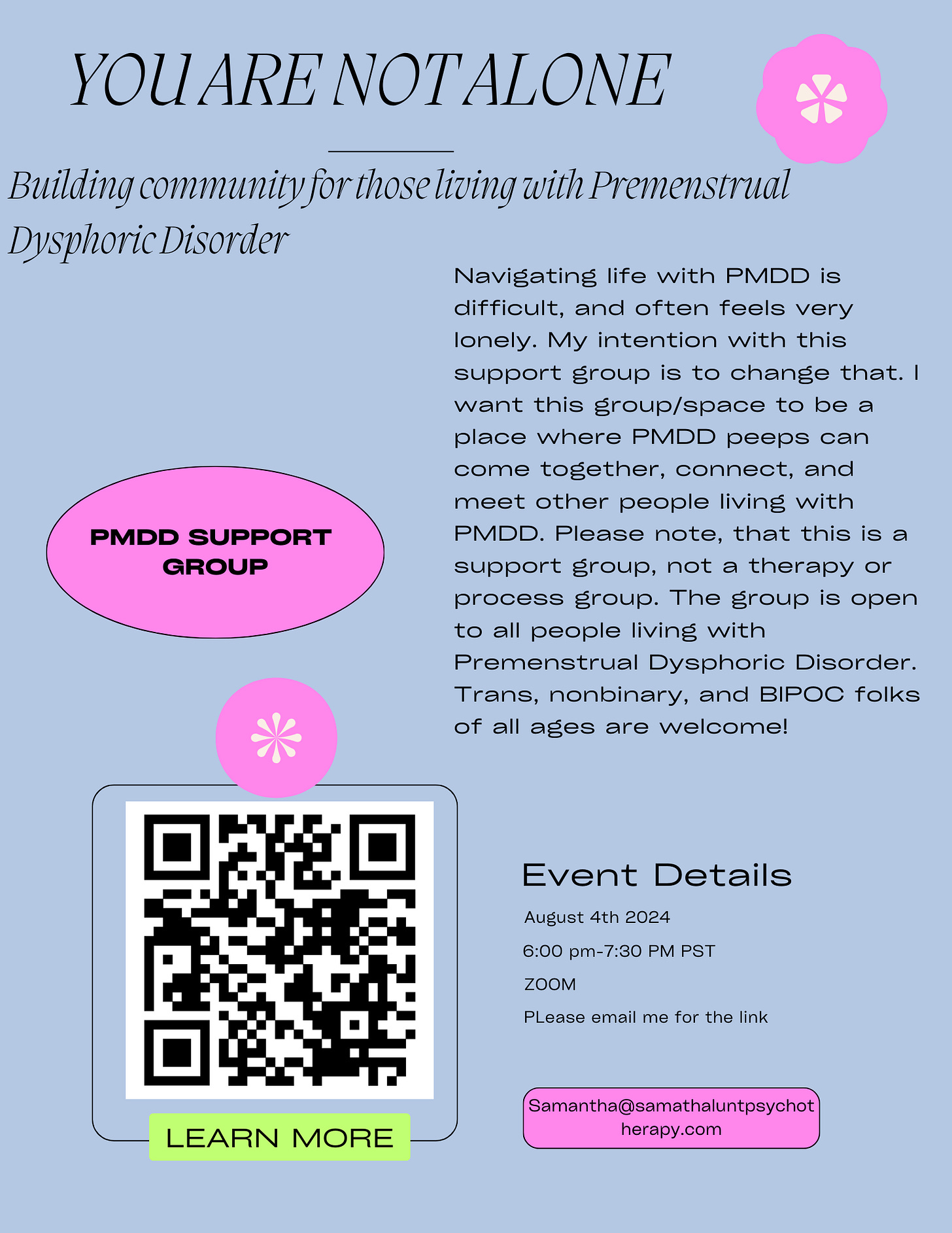

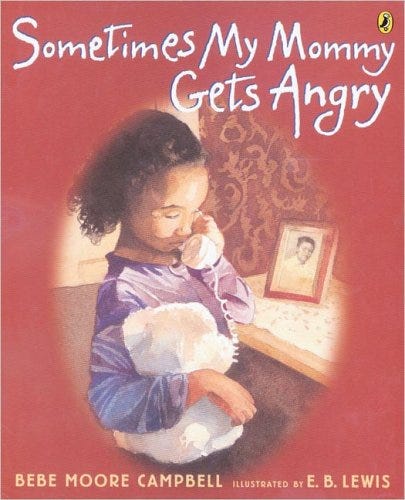
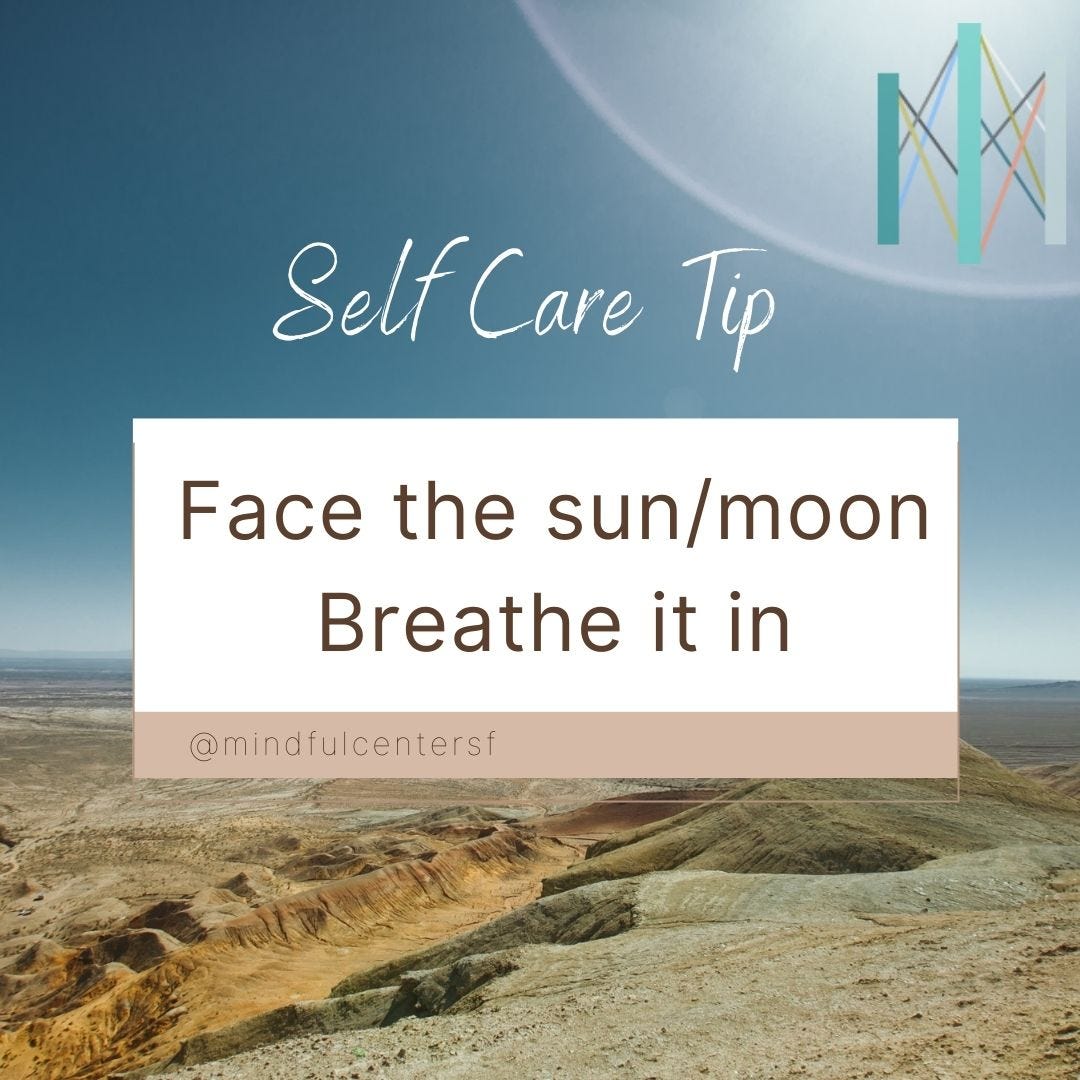




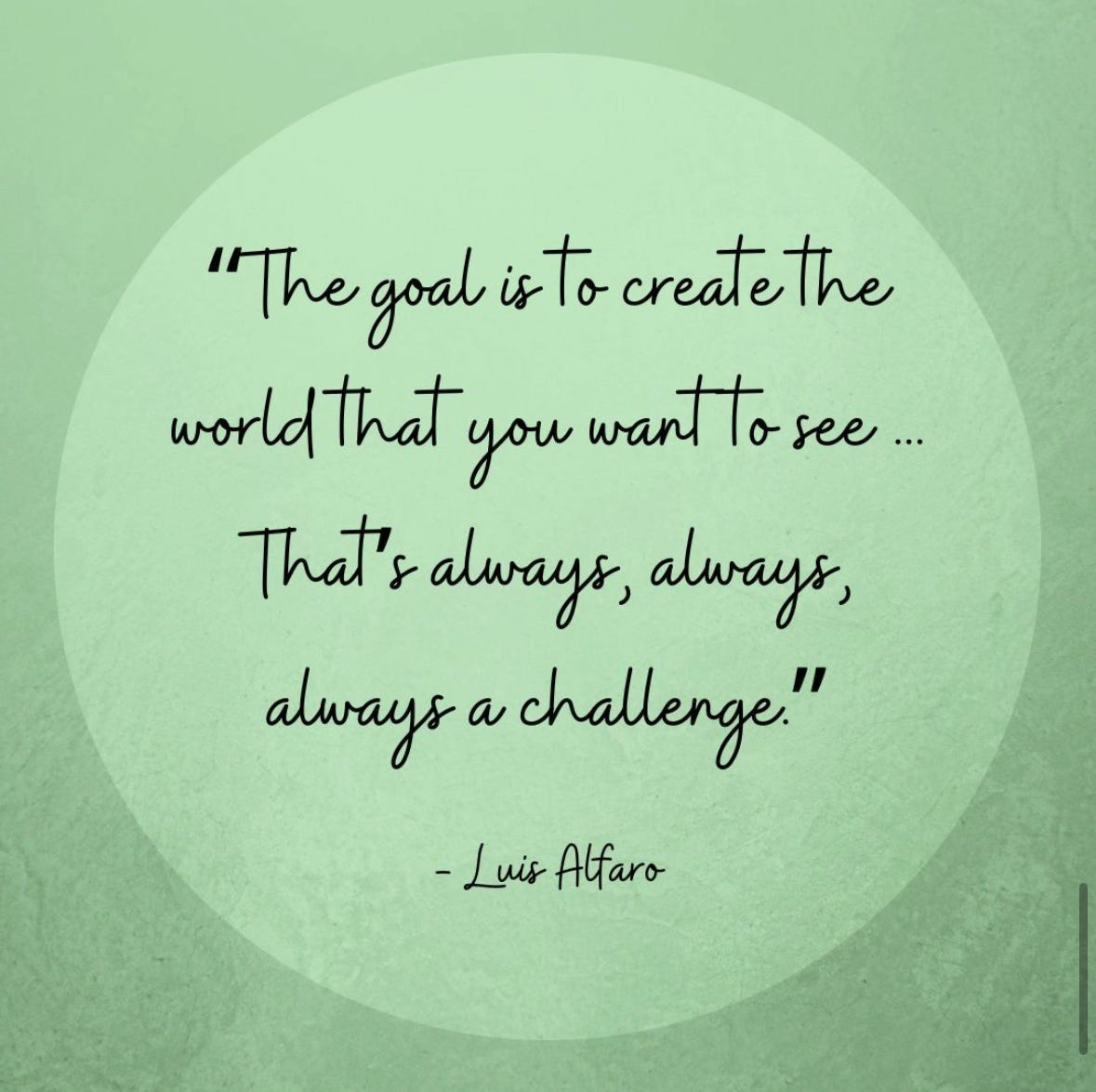



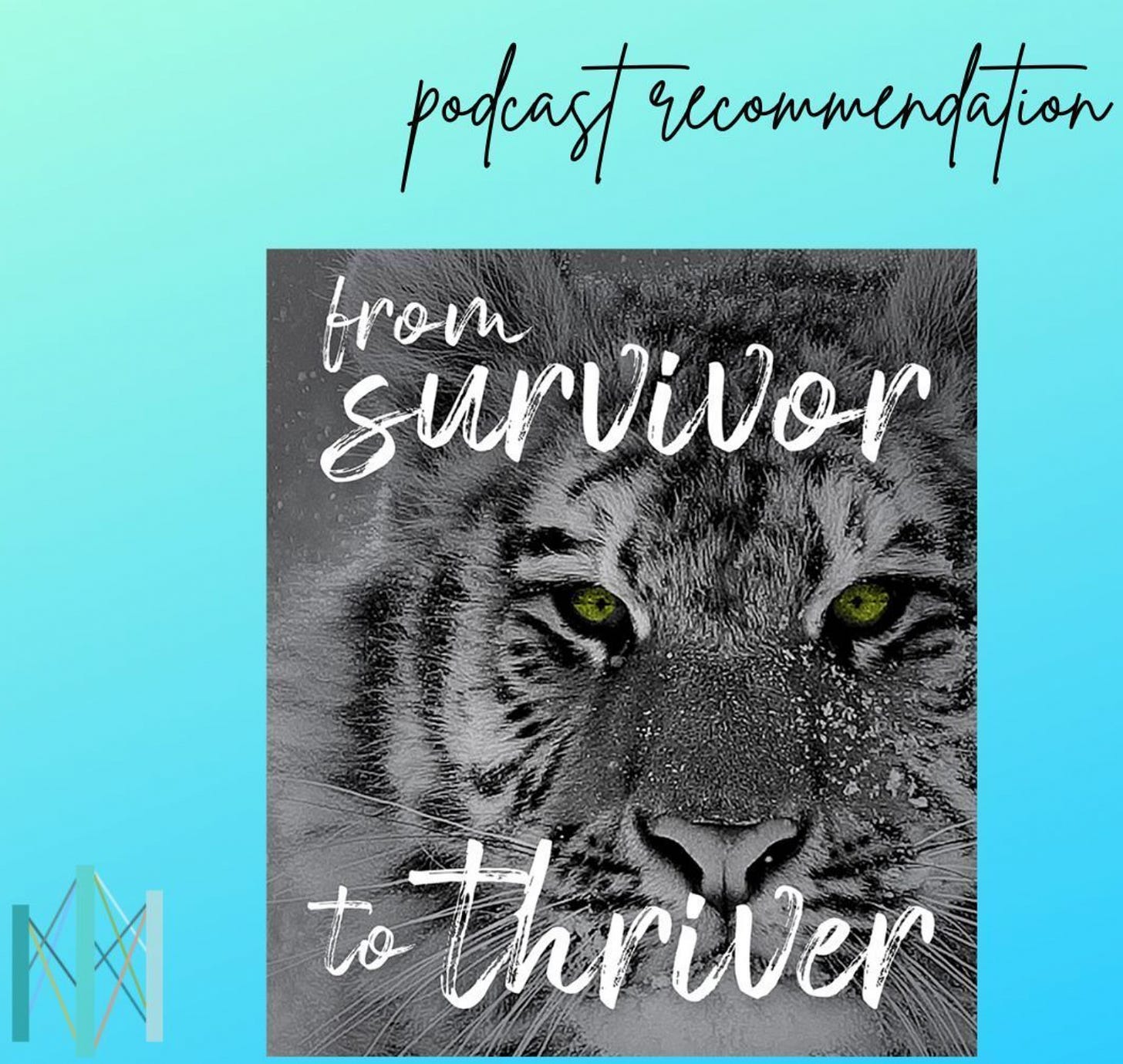

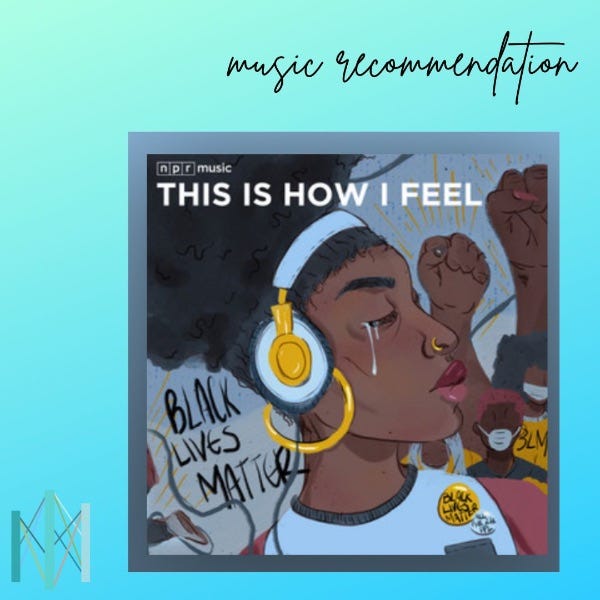






Thank you for including my recent article! I subscribed!
This post is so important. And thank you for the mention!